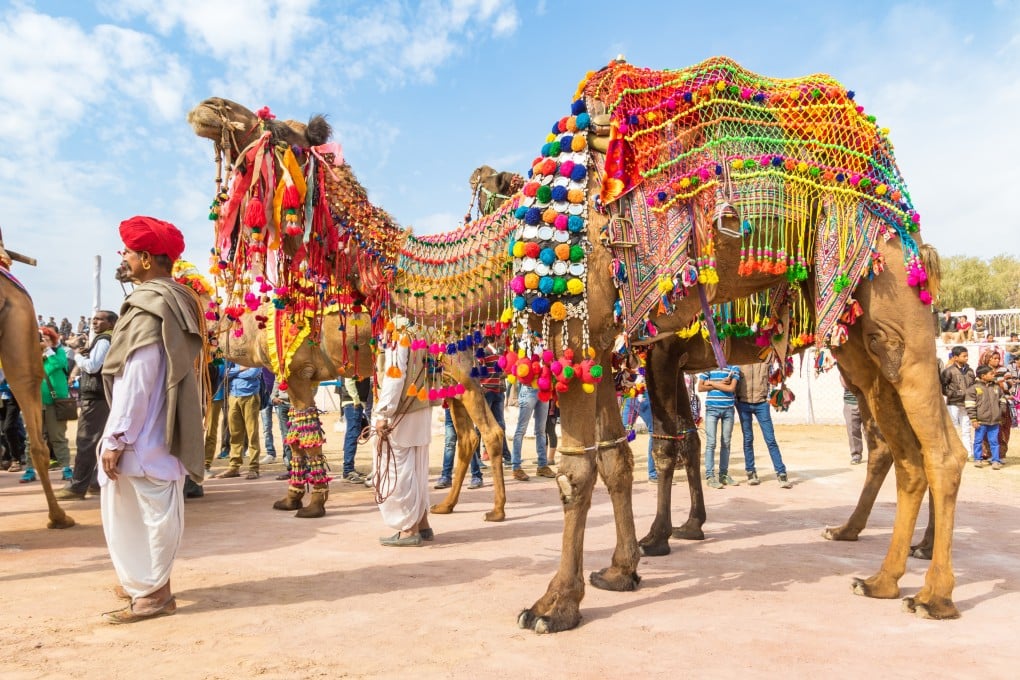India’s Rajasthan state once had a thriving camel industry, but now risks being ‘lost forever’
- The once-thriving industry is in decline due to modernisation, meaning fewer camels are needed, and because of economic realities in a poor state
- Paradoxically, Rajasthan’s camels are disappearing partly because of a law that was introduced in 2015 to protect them

Rescued en route to Hyderabad where they were due to be slaughtered, a caravan of some 150 starving and emaciated camels travel 750km back home to Rajasthan, a state whose deserts once cloistered a proud herding culture that is now struggling to preserve its most treasured creatures.
But it is a race against time to get as many back alive as possible, after about three hard months on the road.

“They can usually walk up to 50km a day, but are not able to walk even half of that now,” says Karnaram Raika, from Rajasthan’s Pali district, where herders carry the community name.
“We had to leave 22 camels in Gujarat as they cannot walk. One of us will go back to get them to Rajasthan but it is possible that most of them will not survive.”
Unwanted by their previous owners, the camels already have a new home earmarked at the Mahaveer Camel Sanctuary in Sirohi, southern Rajasthan, where a large portion of land is dedicated to camel conservation.
But first they have to get there – and at the time of going to print they had about five more difficult days of travel with the caravan in northern Gujarat.